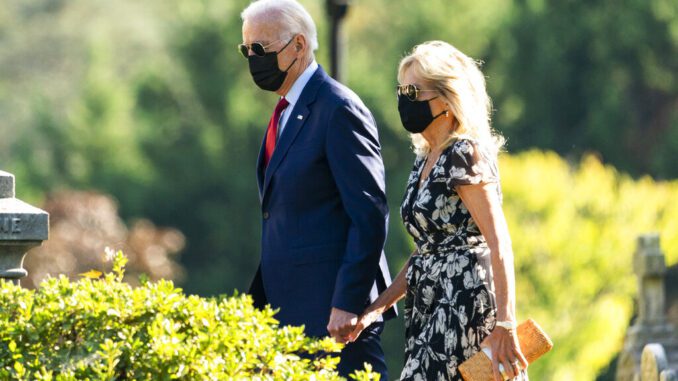
WASHINGTON, D.C. — The collapse of the Afghan government, a surge of COVID-19 cases caused by the delta variant, devastating weather events, a disappointing jobs report. What next?
After a torrent of crises, President Joe Biden is hoping to turn the page on an unrelenting summer and refocus his presidency this fall around his core economic agenda.
But the recent cascade of troubles is a sobering reminder of the unpredictable weight of the office and fresh evidence that presidents rarely have the luxury of focusing on just one crisis at a time. Biden’s unyielding summer knocked his White House onto emergency footing and sent his own poll numbers tumbling.
“The presidency is not a job for a monomaniac,” said presidential historian Michael Beschloss. “You have to be multitasking 24 hours a day.”
Never has that been more true than summer 2021, which began with the White House proclamation of the nation’s “independence” from the coronavirus and a massive infrastructure package. Then COVID-19 came roaring back, the Afghanistan pullout devolved into chaos and hiring slowed.
Biden now hopes for a post-Labor Day reframing of the national conversation toward his twin domestic goals of passing a bipartisan infrastructure bill and pushing through a Democrats-only expansion of the social safety net.
“I think you can expect the president to be communicating over the coming weeks on a range of issues that are front and center on the minds of the American people,” said White House press secretary Jen Psaki.
During the chaotic Afghanistan evacuation, the White House was central in explaining the consequences of Biden’s withdrawal decision and the effort to evacuate Americans and allies from the country. Now, officials want to put the State Department and other agencies out front on the efforts to assist stranded Americans and support evacuees, while Biden moves on.
It’s in part a reflection of an unspoken belief inside the White House that for all the scenes of chaos in Afghanistan, the public backs his decision and it will fade from memory by the midterm elections.
On Friday, in remarks on August’s disappointing jobs report, Biden tried to return to the role of public salesman for his domestic agenda and claim the mantle of warrior for the middle class.
While Biden may want to turn the page, though, aides are mindful that the crises are not done with him.
Biden is planning to speak this week on new efforts to contain the Delta variant and protect kids in schools from COVID-19. And his administration continues to face criticism for his decision to pull American troops from Afghanistan before all U.S. citizens and allies could get out.
“President Biden desperately wants to talk about anything but Afghanistan, but Americans who are hiding from the Taliban, ISIS, and the Haqqani network don’t give a damn about news cycles, long weekends, and polling — they want out,” said Republican Sen. Ben Sasse of Nebraska. He called on the Biden White House to provide a public accounting of the number of Americans and their allies still stuck inside Afghanistan.
Biden also will soon be grappling with fallout from the windup of two anchors of the government’s COVID-19 protection package: The federal moratorium on evictions recently expired, and starting Monday, an estimated 8.9 million people will lose all unemployment benefits.
According to White House officials, even as other issues dominated headlines, Biden and his team have maintained regular conversations with House Speaker Nancy Pelosi, D-Calif., and Senate Minority Leader Mitch McConnell, R-Ky., about the president’s legislative agenda. His legislative team held more than 130 calls and meetings with members of Congress, their chiefs of staff and aides on the infrastructure bill and spending package, and his administration has held over 90 meetings with legislative staff on crafting the reconciliation bill.
Responding to concerns raised by pivotal Sen. Joe Manchin, D-W.Va., over the price tag on the roughly $3.5 trillion social spending package, White House chief of staff Ron Klain told CNN on Sunday that he was convinced that the Democrat was “very persuadable” on the legislation.
Cabinet officials have also been engaged with lawmakers, officials said, and traveled to 80 congressional districts to promote the agenda across the country while Biden was kept in Washington.
